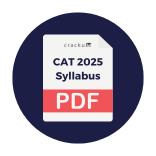The passage given below is followed by four summaries. Choose the option that best captures the author' s position.
To me, a "classic" means precisely the opposite of what my predecessors understood: a work is classical by reason of its resistance to contemporaneity and supposed universality, by reason of its capacity to indicate human particularity and difference in that past epoch. The classic is not what tells me about shared humanity — or, more truthfully put, what lets me recognize myself as already present in the past, what nourishes in me the illusion that everything has been like me and has existed only to prepare the way for me. Instead, the classic is what gives access to radically different forms of human consciousness for any given generation of readers, and thereby expands for them the range of possibilities of what it means to be a human being.
The author states that a classic is not which puts him at the centre of the universe but one which gives access to radically different forms of human consciousness.
Let us evaluate the options.
Option A states that a classic should focus on unified human experience. The author mentions the exact opposite in the paragraph. Therefore, we can eliminate option A. We can eliminate option D too since it mentions the polar opposite of what that is mentioned in the paragraph. The author is of the view that a classic should go beyond providing a unified human experience and expose one to radically different forms of human consciousness.
We can eliminate option B since it states that a classic focuses on common humanity. Only option C captures the essence of the given paragraph and hence, option C is the right answer.
Video Solution

Create a FREE account and get:
- All Quant CAT complete Formulas and shortcuts PDF
- 38+ CAT previous year papers with video solutions PDF
- 5000+ Topic-wise Previous year CAT Solved Questions for Free




